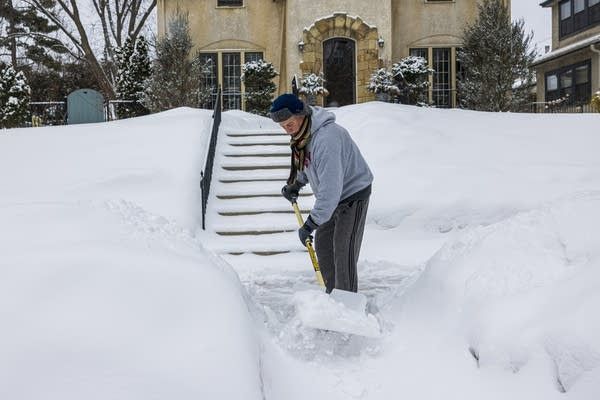Accessibility advocates thrilled over Minneapolis' investment in sidewalk snow removal

Stephen Yoakam shovels the front of his house after a snowfall in Minneapolis on Feb. 22.
Kerem Yücel | MPR News
Go Deeper.
Create an account or log in to save stories.
Like this?
Thanks for liking this story! We have added it to a list of your favorite stories.


